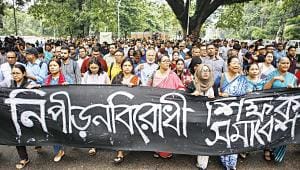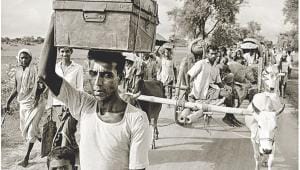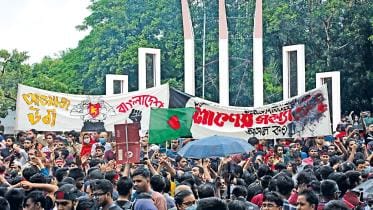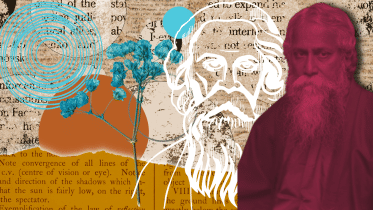Sound of the July uprising
While the July Uprising was sparked by economic problems, political repression, and a desire for democracy, it found a strong and surprising voice in a new form of music for Bangladesh: rap. Two songs, “Kotha Ko” (Speak Up) and “Awaz Utha” (Raise Your Voice), came to represent the sentiment of the movement in July.
3 August 2025, 18:00 PM
Rabindranath, protest, and contested legacies
Anyone familiar with Bangladesh and its culture knows how important his poems and songs are in celebrating our heritage.
8 May 2025, 03:00 AM
Echoes of Exile: Remembering 1971, Confronting the Rohingya Crisis
The July Uprising has brought to the forefront the need for a more inclusive understanding of 1971, one that incorporates the perspectives of ordinary people and addresses unresolved issues of justice, accountability, and historical truth, independent of political manoeuvring.
25 March 2025, 18:00 PM
The Specter of Silence: Intellectualism and the Performance of Discourse in Bangladesh
In the waning days of 1971, the Pakistani army and their collaborators embarked on a chilling campaign to systematically eliminate the nation’s brightest minds – academics, doctors, journalists, artists – those who had dared to dream of an independent Bangladesh and articulate its promise.
15 December 2024, 18:00 PM
Refugees, women, and the 1971 War—a reflection
We all know that 10 million people—one-seventh of the population in 1971—fled to India during our War of Independence in 1971. While there has been some work
15 December 2018, 18:00 PM










